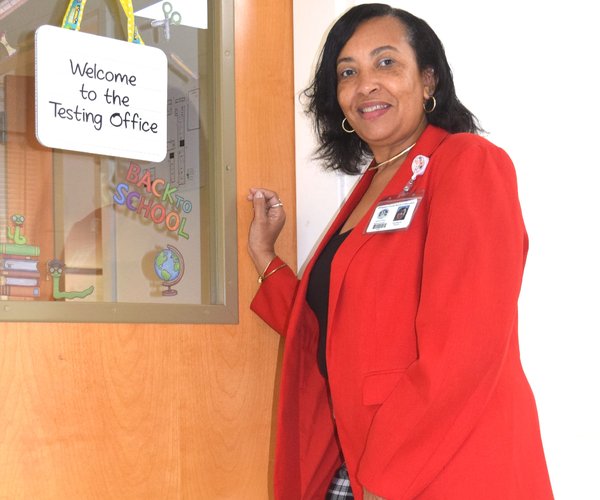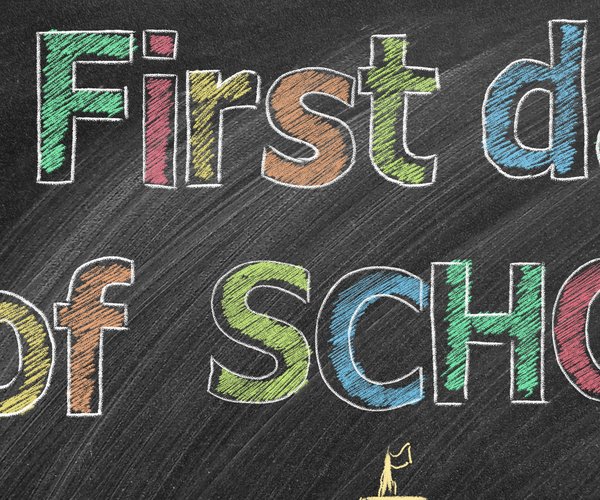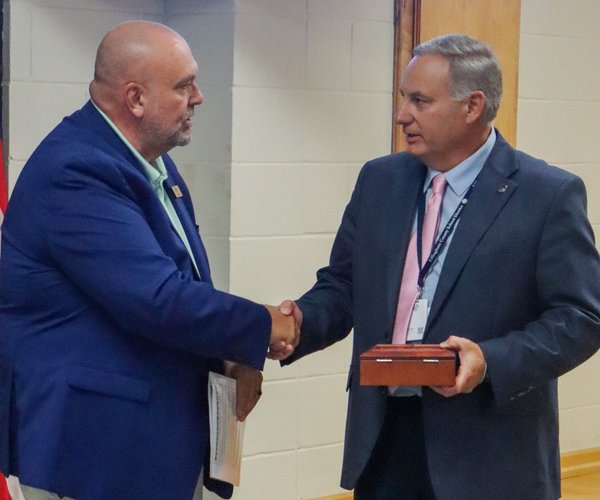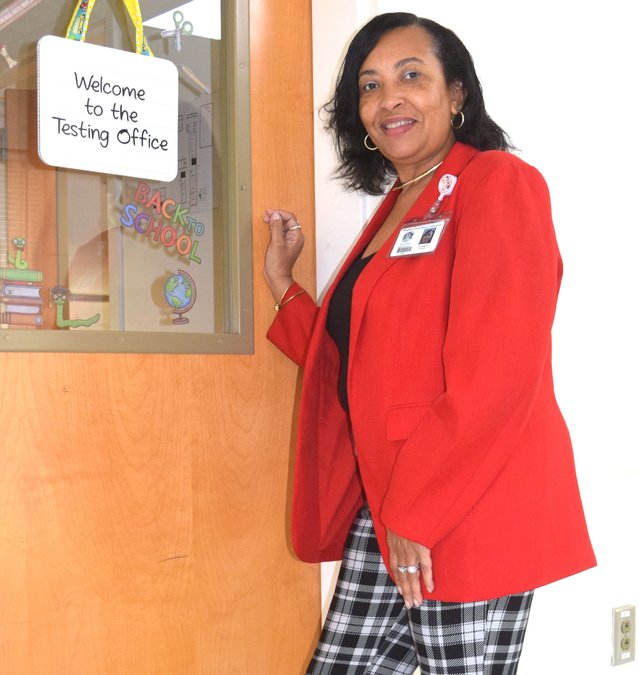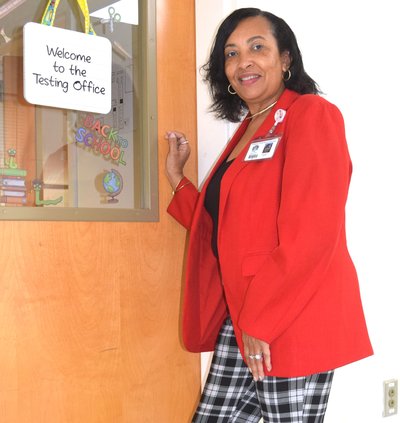Effingham County’s high school graduation rate is higher than the state average according to the final graduation rates released by the state Department of Education.
The state saw an improvement from 70.8 percent to 72.3 percent from for the 2007 graduating class. Effingham County’s graduation rate improved from 69.4 percent to 74.2 percent.
“We’ve done something with a contract to walk,” Superintendent Randy Shearouse said. “I think that’s been a positive.”
Shearouse said many systems will not allow a student to walk at graduation if the student has not passed the high school graduation test.
“We took a little different approach,” he said. We said if you go to all your study sessions and you try to pass the test, we’ll allow you to walk.”
Shearouse said he thinks this approach has helped motivate students to do their best to pass the graduation test and know that as long as they are willing to put in the effort, they will still get to walk at graduation, even if they do not pass the test.
“Walking is a big deal for a lot of kids,” Shearouse said. “We don’t want to take that away unless they don’t meet us halfway.”
The system also approved a policy to allow the schools to look at individual cases to determine if a student can have some of the local requirements waved in order to gradation.
“A lot of kids in ninth grade, they get behind four or five credits, and in 10th grade they begin to struggle,” Shearouse said. “They get to be a senior, and it’s impossible for them.”
Effingham County requires 29 credits to graduate, which is more than what the state demands
“We can look at each individual case and determine if that student has a hardship,” Shearouse said. “They still have to meet all the state requirements, but we may be able to waive a requirement or two from local policy based on the need of the student.”
Shearouse said adding graduation coaches in the schools has also helped.
“I think that’s been a huge positive,” he said. “Those graduation coaches are able to individually work with kids who are struggling and encourage them to go to evening education if they get behind.”
There are now graduation coaches at the middle school level as well.
“I know some people say why do you need a graduation coach in the middle school?” Shearouse said. “Really, it’s to keep those kids on track so they don’t get so far behind. We lose so many kids in ninth grade due to them being behind when they get there and not having the encouragement they need, and graduation coaches at middle school will help with that as well.”
Shearouse said the system is providing options to help students graduate, including working to start the gateway to college program, evening education and the Ombudsman program. There is also the possibility of a career academy as another option for students.
“We have a lot of options for students that I think will benefit them,” he said.
Shearouse said many times a lot of pressure is placed on the teachers to make sure students succeed, but it is everyone’s responsibility.
“It takes everyone working together to get the graduation rate up,” he said.
ECHS
The graduation rate at Effingham County High School for the 2006-07 school year was the same as the state at 72.3 percent. While the state improved 1.5 percent, ECHS had an improvement of 7.3 percent.
ECHS Principal Yancy Ford said he thought the option to look at students who could meet state minimum requirements helped.
“We put kids under contract,” he said. “What I mean is they had to meet with me weekly. There were criteria they had to follow. They kept a notebook. They had to go to study session courses if they hadn’t passed the high school graduation test yet.”
Ford said the students used a computer program called links to learning, a program that is available to all students at the school to prepare for the high school graduation test.
The program, available on the Internet, gives students sample questions to prepare for the high school graduation test.
“The kids who worked through it, we felt like they scored a lot better,” Ford said. “We encourage kids to go on this program who may not need additional help because they’re up to speed. The biggest thing this does for them is it refreshes their memory before the test.
“We put our hands on the kids that were struggling that we knew were borderline,” Ford said. “We showed a little TLC to them and made them come see us once a week, made them accountable for what they were responsible for as far as passing the high school graduation test, and really following up on those kids as far as their academics go.”
Ford said when students go before the graduation committee to graduate under the state requirements, the committee looks at the notebook the students have kept as part of their contract.
“I didn’t have any kids not do it that we sat down with,” Ford said.
Students who signed up for contract to walk were those who had not passed the high school graduation test.
“We put them through this training and the contract to put a little pressure on them, but at the same time, it allowed us to monitor what they were doing," he said.
After the students answer the questions, they are given the correct answers with an explanation. If students don’t understand an explanation, they are encouraged to go to a teacher in the department and ask for help.
Ford said students who fall below 70 percent during the academic term are assigned to tutoring. If the students don’t go to the tutoring, they must meet with him and the staff to call the parents to find out why the students are not staying for tutoring sessions.
“I think just a lot of hard work from our teachers of working with kids so they have numerous opportunities not to fail,” Ford said, “whether it be a kid not completing their homework, and the teacher giving them another opportunity to come in during tutoring and complete that homework.”
Ford said he thinks that has a huge impact on students’ success.
“That personal connection with the kids is probably going to be the biggest thing to help graduation rates,” he said.
The math, the science, the social studies, that’s good. It’s a requirement and they need to know it, but if the kids know you care about them, they’re going to definitely give effort.”
Effingham County High’s teachers have played a large role in improving the graduation rate, according to Ford, “going above and beyond the call of duty to allow kids to make up work that they may not have completed, or they may not have understood.”
“Our teachers need to be recognized for going above and beyond, because they’re the ones pedaling the bicycle, so to speak, of making that work,” he said.
Ford said he can give teachers ideas and offer assistance, but they are the people who are working with the students everyday.
“Sometimes it’s difficult when a kid doesn’t do homework for three nights in a row, and I appreciate them for doing that,” he said. “It’s not rocket science. You just have to roll your sleeves up and get a little dirty and spend some time with kids and know that all of them don’t have the perfect life outside of school, and we have to be flexible.”
SEHS
South Effingham High School’s graduation rate was at 74.4 percent last year, more than 3 percent above the state average, and has increased to 76.5 percent this year, compared to the states 72.3 percent average.
Roni Edenfield, instructional supervisor at SEHS, said there are many factors that affect graduation rates.
“The biggest piece to graduation rate is whether students earn enough credits, whether they pass the graduation test, whether we monitor the at risk things,” she said.
Teachers print progress reports every four and a half weeks and share this information with counselors. Counselors monitor grades and work with parents and students to make sure that everything is being done to support students through classes in which they are struggling.
Edenfield said the number of credits earned by students is monitored continuously.
“There are safety nets in place like our evening education program for students who may become at risk for not earning enough credits,” she said.
Edenfield said it is important to monitor students to ensure they do not fall through the cracks. Graduation coach Erin Watson also has been able to pick up some of the pieces other administrators have been able to watch closely.
Edenfield said it takes a lot of time to monitor at risk factors, and Watson has been able to follow those on a daily basis, including scores for the graduation test.
SEHS began a contract program last January for seniors who failed one or more sections of the GHSGT. They wrote 46 contracts; of those, 38 students eventually passed the GHSGT and graduated on time.
Edenfield said monitoring is done through teacher referrals, monitoring discipline, grades and attendance, since any of those factors can contribute to a student leaving school. When needed, counseling, intervention, support and youth apprenticeship are used to help students.
“Often a student who is at risk will choose to stay in school, if they are presented the opportunity to participate in a career tech area that is related to their interests,” Edenfield said.
Counselors at South Effingham High work with career, technical and adult education coordinator Angie Wood to place students in courses or work-based programs that help them in a vocational area.”
SEHS is starting to see the fruits of the labor of a ninth grade counselor, Edenfield said, who is able to work with students who already are showing signs of being at risk.
The grade counselor has the time to meet with the three teams in the ninth grade academy every week and to work with individual students.
Edenfield said improving graduation rates takes constant monitoring and communication.
“We have all of the concerns and issues that any school in Georgia has,” she said. “I think it takes a team of people watching them and caring about them.”


